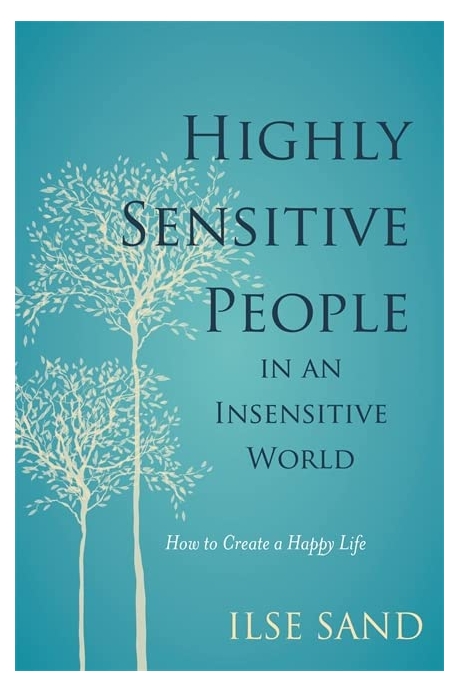서브메뉴
검색
본문
Powered by NAVER OpenAPI
-

-
Highly Sensitive People in an Insensitive World (How to Create a Happy Life)
저자 : Sand|Ilse
출판사 : JessicaKingsleyPub
출판년 : 2016
ISBN : 9781785920660
책소개
“민감함은 신이 주신 최고의 감각이다”
남들과 비슷해지려고 하지 마라
민감한 자신을 인정하면 더 특별해진다!
세계적인 과학 잡지 [뇌와 행동]이 극찬한
민감한 사람들에 대한 새로운 정의
‘남들보다 민감한 사람들(The Highly Sensitive People)’은 대개 까다롭고, 비사교적이고, 신경질적인 사람으로 여겨진다. 이런 사회적 압박과 시선 때문에 민감한 사람들은 자신의 특별한 능력을 인지하지 못한 채 살아간다. “남들처럼 사는 법을 배워야 한다”는 주변 사람들의 말에 스트레스를 받고, 압박과 부담감을 이기지 못해 불안, 우울, 자살의 위험에 이르기도 한다.
하지만 최근 각종 연구에서 밝혀졌듯 ‘민감함’은 고쳐야 할 대상이 아니라 개발해야 할 대상이다. 우리 사회가 높이 평가하는 창의력, 통찰력, 열정 등이 민감함이라는 재능에 기반을 두고 있음에도, 안타깝게도 대부분의 민감한 사람은 자신이 얼마나 놀라운 능력을 가지고 있는지 모른다.
덴마크의 저명한 심리학자이자 베스트셀러 저자인 일자 샌드는 ‘민감함은 결함이 아니라 신이 주신 최고의 감각’이라고 말한다. 그녀의 신작이자 출간 즉시 전 세계 민감한 사람들의 폭발적인 지지를 받은 『센서티브』는 세계적인 과학 잡지 [뇌와 행동]의 극찬을 받았으며, 19개국에 동시 출간되면서 주목을 받고 있다.
In today's fast-paced, increasingly public society, we are expected to be resilient, to have the energy to manage a packed work schedule, social calendar, and a large network of friends, both online and offline, day and night. If you find yourself struggling to live up to, or even enjoy, these non-stop social expectations, then this book is for you. Written for highly sensitive people, the book explains the characteristics of being highly sensitive and how to overcome common difficulties, such as low self-esteem and the exhausting effects of socialising. Ilse Sand also encourages you to explore and appreciate the advantages of high sensitivity, including your aptitude for depth, intensity and presence, and suggests activities to calm and inspire.
목차
Preface 9
Introduction 13
1. The Characteristics of Being Highly Sensitive 16
Two types within the same species 16
We receive more inputs and think deeply about them 17
Sensitive to sensory inputs 19
Easily affected by the moods of other people 21
Conscientious 23
A rich inner life 25
A natural spiritual curiosity 26
A different strategy 27
Slow and judicious 30
Sensation-seeking sensitive people 31
Introvert or extrovert 32
Pros and cons of typology 34
2. High Standards and Low Self-Esteem 36
Personal maxims 36
High standards 37
Self-esteem or self-confidence 38
Why highly sensitive people often lack faith in their own worth 39
How low self-esteem and high standards maintain each other 40
When lowering your standards proves difficult 43
The fear of abandonment 44
Seize the opportunity 46
3. How to Organise Your Life According to Your Type 48
Creating space 48
Setting boundaries 49
When guests linger 51
When you have to say no to something you like 52
Good advice and ideas for dealing with being overwhelmed 54
Some advice about sleep 55
The beneficial effects of water, exercise and physical contact 57
Expressing yourself prevents over-stimulation 58
When you are stimulated from within 58
Telling other people about your sensitivity 59
4. How to Benefit from Your Ability to Relate to Others and Be Present 61
Highly sensitive people prefer high-quality interactions 61
Take breaks 62
Make sure you are part of a dialogue rather than a monologue 63
Figure out what kind of responses you want to give or receive 64
How to deepen a conversation - and lighten it again 69
Interacting on four levels 71
5. How to Face Anger: Your Own and Others' 78
Highly sensitive people have a different strategy when dealing with anger 78
Make use of your abilities to empathise and reflect 83
When it is unwise to be empathic when facing anger 84
When you are not letting others know what you dislike 85
When anger protects us from powerlessness and grief 87
Avoid moralising 89
From 'should' to 'wish' - from anger to sorrow 90
6. Guilt and Shame 93
Relevant guilt 93
Excessive guilt feelings 94
Working with guilt feelings 96
Feelings of shame 98
If you are ashamed of your sensitivity 100
7. Situations in Life 102
Difficulties in relationships 102
To be a highly sensitive parent 104
8. Mental Health Problems 107
Vulnerability to anxiety and depression 107
Exhaustion and depression 109
Feelings and thoughts are closely related - the cognitive model 111
Sometimes it is wise to prepare for the worst 113
The highly sensitive trait may look like anxiety disorder to outsiders 115
Other problems may contribute to a sensitized nervous system 117
9. Developing and Growing 120
Highly sensitive people and psychotherapy 120
Loving yourself - supporting yourself 121
Being compassionate towards yourself 125
Reconciliation 126
The joy of becoming yourself 127
10. Researching the Highly Sensitive Trait 129
Strong reactions to sensory inputs 129
A new articulation 132
Nature and nurture 134
Test results 134
Epilogue: A Gift for the Highly Sensitive 138
Ideas For Highly Sensitive People 141
Inspiring activities 141
Outgoing activities 141
Activities for when you are over-stimulated 142
Test Yourself: How Sensitive are you? 147
Bibliography 153
Acknowledgements 157
About the Author and Translator 159